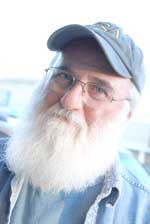
Last week, the Maine Legislature chose the state’s constitutional officers, picking from the usual assortment of political stooges, amiable doofuses and crusty remains of cat-food cans.
The state Constitution insists we must have a secretary of state, an attorney general and a state treasurer for very good reasons, none of which I’m unaware of. The only requirement for winning one of these cushy jobs is to be either a current or past member of the majority party in said Legislature.
Not having any real qualifications for the positions isn’t quite as big a handicap as it might seem, since the actual work of the constitutional offices is done by veteran staff members. Because these employees are the only ones who know where the bodies are buried, they’re rarely replaced, regardless of the partisan affiliations of their newly chosen bosses.
This system actually works pretty well, if you don’t mind squandering taxpayer money on the six-figure salaries of three people whose only purpose in life is either to prepare for seeking some high elected office (new Secretary of State Shenna Bellows) or to pad their retirement accounts (old Secretary of State/new State Auditor Matt Dunlap).
That’s not to say there isn’t a better way of filling these positions. In some states, those officials are elected by voters, which produces results not noticeably different from what we have now. Except it would force us to endure three additional expensive campaigns centered around issues the average person is singularly unqualified to sort out. (Do you even know what the state treasurer does, let alone whether there’s some better way to do it?)
Sometimes, these offices are filled by gubernatorial appointment, serving as part of the chief executive’s cabinet, and leaving when there’s a change of administrations. That’s how it works at the federal level, and the drawbacks are obvious. The political cronies who win these positions make decisions based not on the public interest, but on how their actions will impact their boss’s and their own future prospects.
Not all that different from what we have now.
There is, however, a method of filling the constitutional offices that minimizes their political nature while maximizing the likelihood the applicants will be qualified and competent. It’s simple – if you don’t count the small impediment that it requires amending the Constitution.
Rather than regarding the AG, secretary and treasurer as political plums to be doled out to loyalists who’ve stuck around long after their best-used-by dates or to ambitious twits whose only interest in the titles is as platforms for upcoming candidacies for elected offices they’re thoroughly unqualified to hold, let’s try something else.
Let’s fill the constitutional offices the same way Maine chooses its judges.
Candidates for judgeships are screened by a committee appointed by the governor (except for probate judges, who are elected, which explains why they’re so often blithering idiots). This gateway group acts like a sewage treatment plant, filtering out the grit and grime, leaving a small pool of semi-solid applicants with marginal-to-excellent credentials. The governor then selects a candidate who must be approved by the Legislature’s Judiciary Committee and then the state Senate.
The process isn’t particularly political, because the vast majority of court cases in Maine aren’t political. Even our worst governors (Paul LePage, John Baldacci) have managed to (mostly) nominate judges who weren’t overtly incompetent. And even when they were, these bumbling jurists only held their jobs for seven years, after which they could be flushed away.
The constitutional officers could be chosen in much the same fashion. The state treasurer would have to have a deep background in finance. The attorney general would demonstrate extensive experience in criminal and civil law. The secretary of state would display knowledge of … I dunno … shorthand? Filing?
This system isn’t perfect. Turds could still slip through. But it would be less likely to produce unseemly skid marks than the current method.
And it might even result in putting people in those jobs who could actually do something productive.
Got a better idea? You’re probably wrong, but email it to aldiamon@herniahill.net, anyway.




